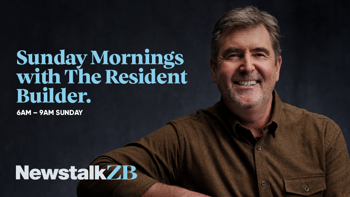
Labour leader Chris Hipkins is backing using ethnicity to reduce health inequities for Māori, saying there’s nothing to be afraid of and opposing parties are using “race-baiting politics”.
But National’s Christopher Luxon said health services and access had to be based on need, not race, as the two men vying to be the next prime minister duelled it out in TVNZ’s Leaders’ Debate last night.
“I’m not afraid of anything,” he retorted to Hipkins.
The pair clashed in a sometime-prickly encounter, canvassing an array of issues such as law and order, the economy, tax, potential coalition arrangements and the Covid-19 response.
It was the first of three televised leaders’ debates which will help voters decide who becomes prime minister in just 24 days.
STORY CONTINUES AFTER LIVE BLOG
STORY CONTINUES
Luxon agreed with Hipkins that “by Māori, for Māori” was positive in the context of a single system, and that health for Māori was best delivered by local organisations at a local level. But the Māori Health Authority created two systems of delivery, which he was opposed to.
“That’s two systems creating two separate bureaucracies ... that’s not the way to deal with it.”
/cloudfront-ap-southeast-2.images.arcpublishing.com/nzme/4M7WVKRBA5DUFKGC7DEOI76COY.jpg) Chris Hipkins and Christopher Luxon in the first Leaders' Debate on TV1 last night. Photo / TVNZ
Chris Hipkins and Christopher Luxon in the first Leaders' Debate on TV1 last night. Photo / TVNZ
Hipkins supported the health system’s efforts to prioritise based on ethnicity as well as other factors including need.
“I don’t think it’s fair to consign Māori to worse health outcomes. They have the same need and they’re waiting longer. Why is that fair?
“The Māori Health Authority isn’t having two systems,” Hipkins said, challenging Luxon on why he would keep Māori health providers if he didn’t want two systems of health.
During the quick-fire questions in the debate, they both supported bilingual road signs, free state school lunches (Hipkins said in a targeted way, which Luxon later clarified he also meant), a four-year parliamentary term, and a new flag.
They were against a wealth tax, taxing vacant houses, making te reo compulsory in schools, having nuclear-powered ships in New Zealand waters, decriminalising cannabis and making vapes prescription only (though Luxon was open to it).
Hipkins wanted a ban on fizzy drinks in secondary schools but Luxon said educating people was more important.
/cloudfront-ap-southeast-2.images.arcpublishing.com/nzme/HFIQOHVQEFFTDKPEKQCFVH466Q.jpg) Christopher Luxon makes his points during the televised Leaders' Debate. Photo / TVNZ
Christopher Luxon makes his points during the televised Leaders' Debate. Photo / TVNZ
National’s tax package also took centre stage, and has been questioned by some economists but also independently verified by strategic advisers Castalia.
At the start of the debate, Luxon deflected questions about what he would do if the tax revenue he expects to pay for tax relief doesn’t come through.
He repeated that he was confident in the numbers, and those included selling 1600 to 1700 homes priced at over $2 million to foreigners every year, taxed at 15 per cent, which he said would bring in enough revenue alongside other measures to fund tax relief for low to middle-income New Zealanders.
Hipkins repeated his line of attack that National’s numbers didn’t stack up.
“They can’t sell $5 billion in Kiwi homes every year,” he said, adding New Zealanders would also have to gamble online more than now and also suffer through billions of dollars in public service cuts.
“I don’t trust him to be up-front and honest with New Zealanders ... if he was, he’d be releasing his secret costings.”
Hipkins claimed National’s tax cuts would fuel inflation, which Luxon said was rubbish because it had been costed as fiscally neutral.
Hipkins said National’s plan would cut a lot of policies to reduce the cost of living - such as no $5 prescription fee - but Luxon said National’s tax relief would give $250 a fortnight to a family of four.
“It’s much better than a couple of cents off your beans and carrots,” Luxon said, a reference to Labour’s GST-free fruit and vegetables policy where savings may not be passed on to consumers.
A median worker would be $25 a week better off under National’s plan, which would be useful as rents and food prices and fuel costs had increased, which Luxon said would be more useful than Labour’s policies.
“Help is on the way,” Luxon said, a line often used by New Zealand First leader Winston Peters.
They sparred on fuel prices, with Luxon saying he wouldn’t raise petrol taxes for a first term, while Hipkins said an extra 4 cents a year was needed to invest in roads. He further claimed that Luxon’s climate policies could see an additional 40 cents a litre at a petrol pump, which National has rubbished.
Hipkins said emissions had been falling in recent years but National wanted to roll back every policy that had led to those reductions, such as the so-called ute tax.
Luxon said National remained committed to emissions targets but would go about it a different way to Labour, including increasing the national network of charging stations for electric vehicles.
On law and order, Luxon said he had walked around at night in downtown Auckland and hadn’t felt safe.
Labour’s efforts to reduce the prison population by 30 per cent had not led to a similar reduction in crime, which had instead increased, Luxon said.
National had a number of policies against gangs and Luxon said he wanted “tougher, stronger sentencing”.
He said boot camps for young criminals would work, even though under the previous National Government the reoffending rate was 83 per cent.
“We can make them better.”
He said Labour was “soft on crime”, to which Hipkins replied “a slogan is not a solution”.
Hipkins said the law had been changed so police could “go after the gangs”.
He noted the 50,000 charges against gang members as part of Operation Cobalt, and the 75 per cent reduction in reoffending in the Circuit Breaker programme to break the cycle of crime.
“That’s what we need to turn their lives around.”
/cloudfront-ap-southeast-2.images.arcpublishing.com/nzme/LHH3EZHSGZFYBKC22J6VUY5COM.jpg) Chris Hipkins rated his performance in the debate as eight out of 10. Photo / TVNZ
Chris Hipkins rated his performance in the debate as eight out of 10. Photo / TVNZ
Asked what quality he most deplored about himself, Luxon said he was “hard-charging”, while Hipkins said he needed to delegate more.
On a more conciliatory note, Hipkins and Luxon said they admired each others’ dedication to their families and the fact they both took on their current roles, which can be challenging.
“I admire and respect anyone who can do that,” Luxon said of the role of prime minister.
The debate followed a couple of weeks of intense campaigning, with Hipkins and Luxon travelling the country trying to persuade people to vote for their respective parties.
Afterwards Luxon gave himself eight out of 10 but said it was for others to say who won.
“Both of us were respectful ... hopefully the New Zealand public got something out of it,” he said, adding that it was only one aspect of the campaign.
Asked about his “race-baiting politics” comment, Hipkins said after the debate that it was because of other parties “dividing New Zealanders in order to secure votes”.
He also gave himself an eight out of 10, and defended saying that Act and New Zealand First - National’s potential governing partners - were courting anti-vax voters.
Of Luxon, he said: “Even with a lot of interjection, you can’t get Christopher Luxon to answer a question.”
Derek Cheng is a senior journalist who started at the Herald in 2004. He has done several stints in the press gallery and is a former deputy political editor.
Take your Radio, Podcasts and Music with you









